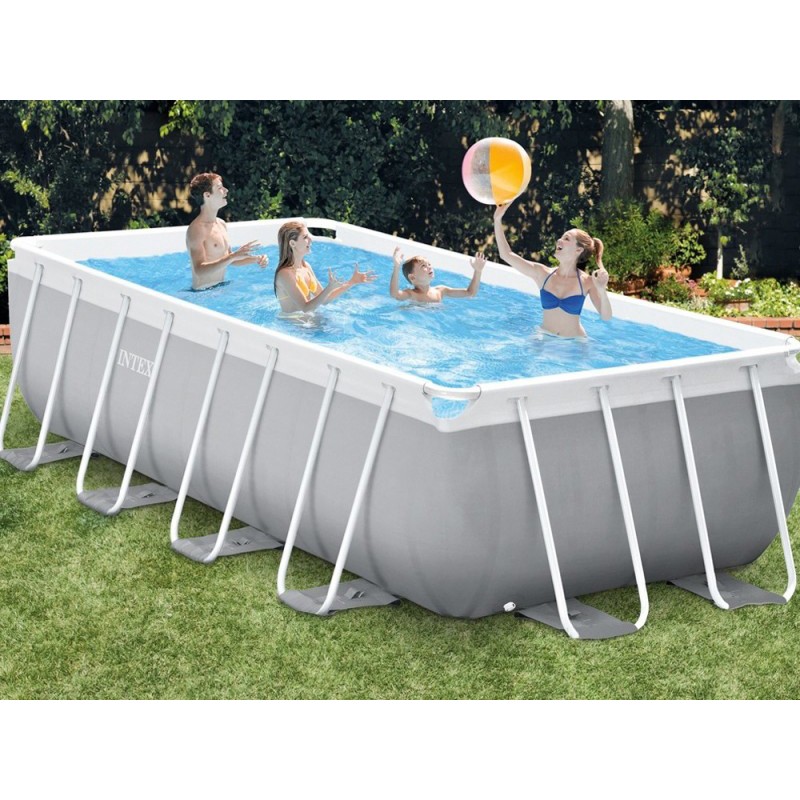
Detachable pools are becoming increasingly popular among homeowners who want to enjoy the benefits of having a swimming pool without the high cost and maintenance of an in-ground pool. However, like any swimming pool, detachable pools require proper water treatment to ensure the safety and health of swimmers. In this article, we will explore the different methods of water treatment for detachable pools.
Chlorine Treatment
One of the most common methods of water treatment for detachable pools is chlorine treatment. Chlorine is a powerful disinfectant that kills bacteria, viruses, and algae in the water. It is available in many different forms, including tablets, granules, and liquid. Chlorine tablets are the most convenient option for detachable pools, as they can be easily added to a floating dispenser or skimmer basket.
When using chlorine tablets, it is important to maintain the proper chlorine level in the pool. The ideal range for chlorine is between 1.0 and 3.0 parts per million (ppm). If the chlorine level is too low, it may not be effective in killing bacteria and algae. If the chlorine level is too high, it can irritate the skin, eyes, and respiratory system of swimmers.
Bromine Treatment
Bromine is another disinfectant that can be used to treat detachable pool water. It is less irritating to the skin and eyes than chlorine and is often recommended for people with sensitive skin. Bromine is available in tablets or granules and can be added to a floating dispenser or skimmer basket.
The ideal range for bromine is between 3.0 and 5.0 ppm. Like chlorine, it is important to maintain the proper bromine level in the pool to ensure effective disinfection.
Ozone Treatment
Ozone is a powerful oxidizer that can be used to treat detachable pool water. It works by breaking down organic matter in the water, including bacteria and algae. Ozone is produced by an ozone generator and injected into the water through a special system.
Ozone treatment is effective in killing bacteria and algae, but it does not provide residual protection like chlorine or bromine. This means that the water can become contaminated again if new bacteria or algae are introduced to the pool.
UV Treatment
UV treatment is another method of water treatment for detachable pools. It works by using ultraviolet light to kill bacteria, viruses, and algae in the water. The water is passed through a special UV chamber that exposes it to the light.
UV treatment is effective in killing bacteria and algae, but it does not provide residual protection like chlorine or bromine. This means that the water can become contaminated again if new bacteria or algae are introduced to the pool.
Saltwater Treatment
Saltwater treatment is a popular method of water treatment for detachable pools. It works by converting salt into chlorine through a process called electrolysis. The chlorine produced by the saltwater system is less harsh than traditional chlorine and is less likely to irritate the skin, eyes, and respiratory system of swimmers.
Maintaining the proper salt level in the pool is important for effective saltwater treatment. The ideal range for salt is between 2,500 and 3,500 ppm.
Non-Chemical Methods
There are also non-chemical methods of water treatment for detachable pools. These methods include using natural enzymes, ionizers, and mineral systems to treat the water. Natural enzymes work by breaking down organic matter in the water, while ionizers and mineral systems work by releasing copper and silver ions into the water to kill bacteria and algae.
Non-chemical methods of water treatment are often more expensive than traditional methods and may not be as effective in preventing algae growth. However, they are a good option for people who are sensitive to chlorine or other chemicals.
Conclusion
In conclusion, proper water treatment is essential for maintaining a clean and safe detachable pool. Chlorine and bromine are the most common methods of water treatment, but ozone, UV, saltwater, and non-chemical methods are also available. It is important to maintain the proper chemical levels in the pool and to follow the manufacturer’s instructions for any water treatment system used. By taking care of your detachable pool and following proper water treatment methods, you can enjoy a clean and safe swimming experience all summer long.

